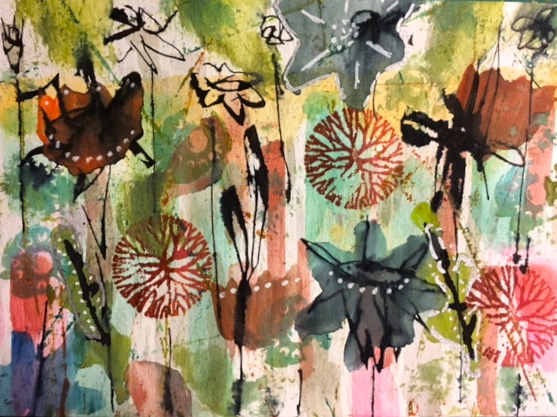
When I first moved to Florida many years ago, the expression “Cone of Uncertainty” caught my attention. During hurricane season, it refers to the cone-shaped path that a storm might potentially follow at any given time. In other words, the weather forecasters can’t really pinpoint when or where it might land.
Turns out, that’s also a way to describe how we grieve.
Those familiar with Elizabeth Kubler-Ross know that she divides the process of grief into five stages – denial, anger, bargaining, depression and finally acceptance. To that neat package, I say, “If only it were so simple.” Imagine being able to identify that you’re angry with only two more stages to go, or feeling depressed, but relieved that acceptance is just around the corner. Unfortunately, it’s not that linear. Grief will pinch your heart months or years later walking into the hardware store and smelling pipe tobacco, or driving in the car listening to the radio and hearing a parent’s favorite tune. It is not always loud or obvious, and surprisingly not a constant.
Sometimes deep sadness is coupled with a mix of other emotions. If a parent was suffering you feel at peace knowing their pain is gone. You may be relieved that the stress and challenges of caregiving are at an end, yet at the same time feel unmoored because the concentration and energy you devoted to this job are no longer required. For caregivers in particular, grief can sometimes seem insurmountable for this very reason.
In times of great loss, regret can often keep us stuck. The death of a parent is the death of hope. You may have longed for a different relationship with them. One in which you said or heard, “I love you,” or “thank you,” more often. Our parents also tend to be the keepers of family history and with their deaths we lose our connection to the past.
Guilt is another difficult emotion to overcome. You wonder if you did enough or should have done things differently. Harsh words were spoken and apologies are too late. Now is the time to remember you’re only human. Being the perfect child is just as unrealistic as being the perfect caregiver. Stop judging yourself. Instead create something positive out the negative. Maybe your father liked his cats more than his kids. Make a donation to The Humane Society to honor his memory. Maybe you wished your mother had spent more time with you as a child. Look into becoming a Big Brother or Big Sister or volunteer as a reader to kids at the local elementary school. I’m not suggesting you leap into anything immediately, but there are ways of softening the guilt and regret that attach themselves to the death of a parent.
Keep in mind that the experience of losing a mother or father will be different for every sibling. It depends on your relationship with that parent; what words remained unspoken; and how you viewed your contribution to their well-being, not just at the end, but throughout their lives.
Anniversaries of a death or certain holidays can be tough. A year after my Dad died, I raised a glass of wine, played Puccini’s Madame Butterfly (our favorite opera) and said, “Daddeo, wherever you are, I hope it’s interesting.” He was fond of telling me that heaven seemed like a very boring place. On Mother’s Day, I do all the things my mother loved to do – thrift shopping, listening to Barbara Streisand CD’s in the car, eating lunch at Too Jay’s, then I come home and tell her ashes all about it.
If you don’t want to be alone, plan ahead to get together with people who will be emotionally available for you. Just like everyone grieves differently, your friends, family and co-workers will support you in different ways. Not everyone can be a good listener when you need to talk through the grief. Some people are better with concrete tasks like bringing over dinner or taking care of a chore you’ve been putting off.
Midway through the experience of attending to both my parents, what concerned me was something that often occurs with caregivers. Our identities merge with the task of caring both physically and emotionally for an aging parent and at some point the question arises – “Who will we be when the caregiving ends?” You might discover this type of service is something you’re really good at and you want to do more. For someone else, the idea of being responsible for another living creature, even if it’s just a pet, is way too much. The point is to be gentle with yourself, no matter what you feel.
Keep in mind, there’s no set timetable for grieving and no right way to do it. Give yourself permission to experience moments of joy amidst the mourning. It does occur. Don’t try to be all things to all people. If that means a moratorium on helping others deal with the loss, so be it. If you need help, ask for it – from clergy, from friends, a support group or a grief counselor.
Grief, which is so often muddied with guilt, regret and anger, can be exhausting. Doing what we can to make things right with our parents before it’s too late, opens us to the possibility of experiencing what Mary Pipher, psychologist and author, refers to as “good, clean sorrow.” It’s certainly something to hope for.
Excerpt from The Dutiful Daughter’s Guide to Caregiving
Photo by Carlos Koblischek


